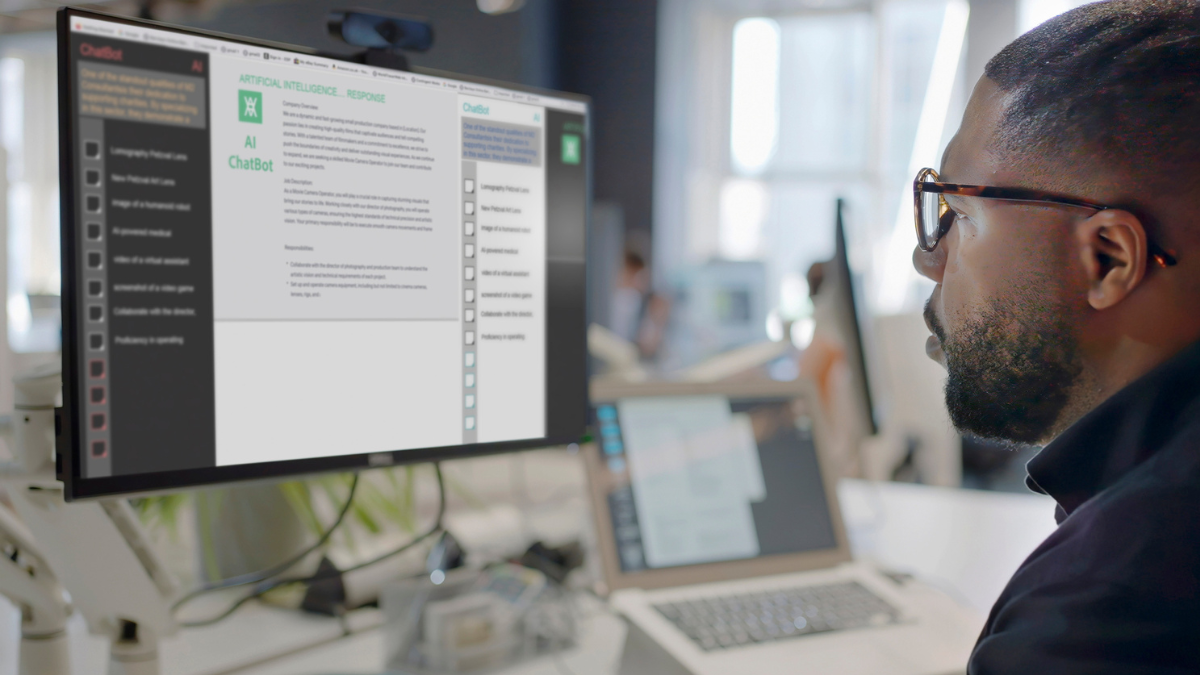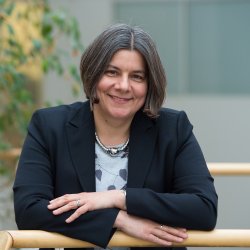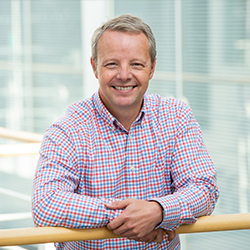Artificial intelligence can help us break down barriers and usher in an era of digital equality
Making sure people have equitable access to artificial intelligence (AI)-powered digital media is the focus of a multi-million-pound Leverhulme Doctoral Scholarships Network awarded to the University of Surrey.

The new Leverhulme Doctoral Scholarships Network for AI-Enabled Digital Accessibility – ADA – will be established at Surrey after the Leverhulme Trust awarded a grant of £2.15 million for the eight-year project.
Engaging with digital content – from watching news to navigating apps or using chatbots – involves complex interactions demanding all our senses to derive meaning. Problems occur when a user can't access their preferred way of communication or language. Various translation methods are used to bridge the gap, such as converting text into subtitles, transforming text into a simpler version, rendering visual content into verbal descriptions or translating documents into community languages. However, as digital content continues to grow, accessibility needs cannot be met with human resources alone.
The surge in digital content, coupled with legislative pressures regarding accessibility, has spurred interest in AI-powered solutions, but understanding and translating language, sound, and vision remains challenging for machines. The Network's research will go beyond current AI-driven methods, establishing a new AI-enabled paradigm where evidence from the humanities and social sciences regarding user needs will guide the development of responsible solutions for accessible digital media.
The Network's name pays homage to computing pioneer, talented writer and translator Ada Lovelace, who resided in Surrey and overcame societal barriers faced by women in 19th century England to pursue her passion for mathematics.
The Surrey Institute for People-Centred AI (PAI) is home to ADA. Research and training at PAI focus on real-world problems, advancing AI from the human perspective. ADA will assist the Institute with its vision to serve society based on an inclusive, diverse and fair approach to AI. ADA brings together expertise from three of the University's renowned research centres – the Centre for Translation Studies (CTS), the Centre for Vision, Speech and Signal Processing (CVSSP) and Nature Inspired Computer and Engineering Research Group (NICE):
- CTS will provide expertise in improving media accessibility through human-centric uses of language and translation technology.
- CVSSP will allow the Network to take advantage of its world-leading expertise in AI, machine perception and computer vision.
- NICE will bring specific capability in knowledge-driven AI and machine translation for under-resourced languages.
In addition, the Network will benefit from contributions by Surrey's Digital World Research Centre (DWRC), Digital Societies and Brain and Behaviour research groups.
The core team of the Network will be a unique world-class team of researchers with a wide range of theoretical and methodological skills from different disciplines:
- Professor Sabine Braun (CTS), ADA Director. She is a translation scholar focussing on human-machine integration in spoken-language interpreting and audio description. She was the workstream leader of the European H2020 MeMAD grant on automating audio description and is currently working on NIHR and European grants relating to community interpreting. She is the Director of CTS and a Co-Director of Surrey's PAI.
- Professor Philip Jackson (CVSSP), ADA Co-Director. He is a Fellow at Surrey’s PAI and an expert in spatial audio and machine listening in CVSSP, directing research on object-based media and audio-visual AI. He is the research stream and ethics lead for Surrey's BBC-EPSRC partnership, 'AI4ME', on media personalisation.
- Dr Elena Davitti (CTS), ADA Co-Director. She is Associate Professor in Translation Studies and an expert in human-centric, hybrid modalities for real-time speech-to-speech and speech-to-text across languages. She was the Principal Investigator on the recently completed ESRC project SMART.
Featured Academics
Media Contacts
External Communications and PR team
Phone: +44 (0)1483 684380 / 688914 / 684378
Email: mediarelations@surrey.ac.uk
Out of hours: +44 (0)7773 479911

